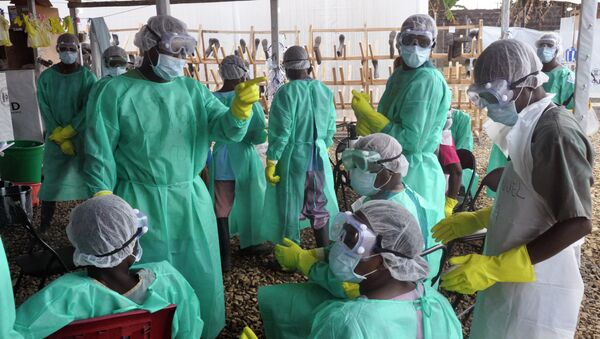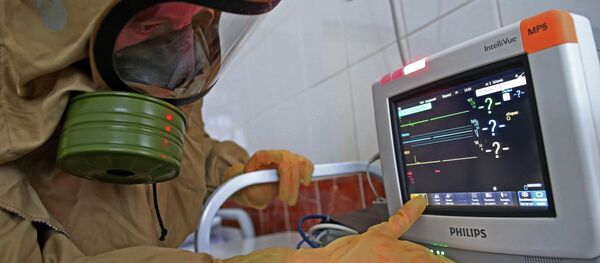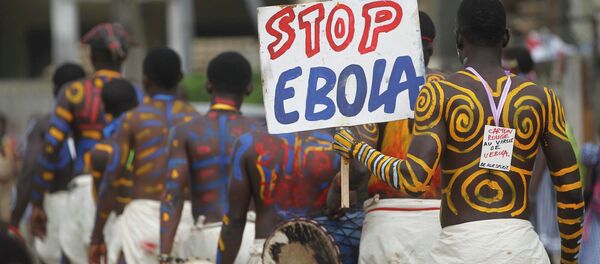A small amount of virus will be injected into volunteers in order to trigger an immune response. However, the efficiency of the vaccine has not been confirmed yet.
At the moment, community nurses are being trained to monitor the condition of patients to be vaccinated.
In January, Russia’s Health Ministry announced that a Russian-made vaccine against the Ebola virus would be available in early 2016. Pre-clinical trials of the vaccine are already underway, with the beginning of human tests planned for March.
Several more countries, including the United States and Germany are working on elaborating the Ebola vaccine. Such companies as NewLink Genetics, Merck and Johnson & Johnson are involved in the process. Johnson & Johnson announced in January that the company had started the first phase of the in-human clinical trials for a preventative vaccine.
Liberia, Sierra Leone and Guinea, the countries worst-hit by the virus, have in recent months been reporting their lowest numbers of new Ebola cases. In Liberia, 20 cases were reported in the past three weeks, according to the World Health Organization (WHO).
The current Ebola outbreak began in December 2013 in West Africa. Several countries have recently intensified their efforts to find a vaccine against the virus, which has claimed the lives of more almost 8,800 people, according to the latest WHO estimates. The number of cases reported exceed 22,000.





